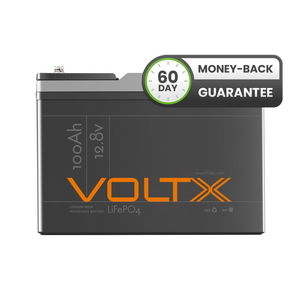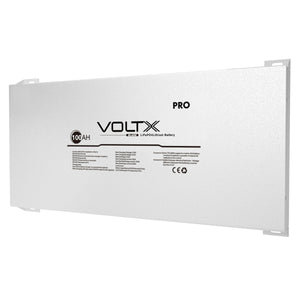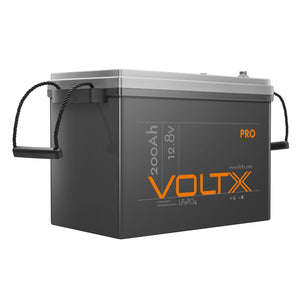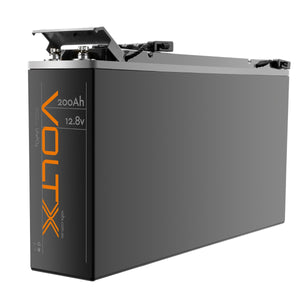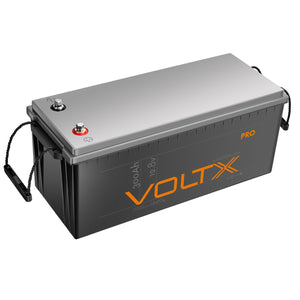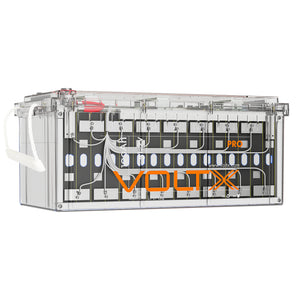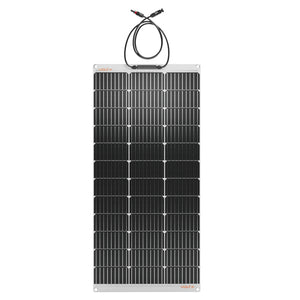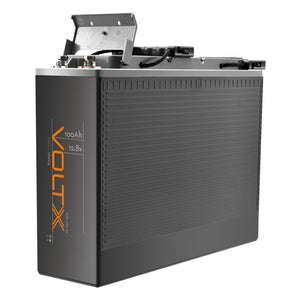Guide to Solar Batteries For Home
As energy costs continue to rise and power reliability becomes increasingly unpredictable, Australian homeowners are discovering the transformative power of solar batteries for home storage. The desire for energy independence isn't just about reducing power bills—it's about taking control of your household's energy future and ensuring reliable power when you need it most. Modern advances in home energy storage technology, particularly the development of LiFePO4 (Lithium Iron Phosphate) batteries, have made this dream more accessible and practical than ever before in 2025. Whether you're looking to maximise your existing solar investment or create a complete off-grid solution, understanding how to harness and store solar energy effectively can revolutionise the way you power your home.
The Key Benefits of a Solar Home Battery System
Investing in solar home battery systems addresses multiple concerns that resonate with Australian homeowners, starting with the critical need for energy security and backup power during increasingly common grid failures and extreme weather events. A solar battery backup for house installations provides essential peace of mind, keeping your lights on, refrigerator running, and communication devices charged when the grid fails—particularly valuable in bushfire-prone regions or areas with ageing infrastructure. Beyond emergency preparedness, these house battery solutions enable you to maximise your solar investment by storing excess power generated during peak sunshine hours for use during evenings and cloudy days, dramatically reducing your reliance on expensive grid electricity.
This self-consumption model translates directly into reduced power bills, as you're essentially becoming your own power company, using clean energy you've generated rather than purchasing it at premium rates during peak demand periods. Additionally, solar system batteries represent a meaningful step towards sustainable living, allowing environmentally conscious households to significantly reduce their carbon footprint while maintaining modern comfort and convenience.
How to Choose the Best Solar Battery for Your Home
Selecting the best solar batteries for home use requires an understanding of how technical specifications translate into real-world performance, and at Outbax, we've simplified this process by matching our product range to specific lifestyle needs and usage scenarios.
Matching Capacity to Your Lifestyle
Battery capacity, measured in Amp-Hours (Ah) or Watt-Hours (Wh), essentially determines how much power your system can store—think of it as the size of your energy tank. For weekend getaways and basic backup needs, a 100Ah battery like the popular VoltX 12V 100Ah LiFePO4 Battery provides versatile power for running essential appliances such as fridges, lights, and device charging in caravans or during short outages. Those pursuing off-grid living or requiring comprehensive home backup should consider larger capacities. For instance, the VoltX 12V 200Ah Pro delivers an impressive 2560Wh of energy for powering multiple appliances simultaneously, while the VoltX 12V 300Ah Pro caters to serious power demands where running everything from water pumps to entertainment systems is essential.
Finding the Perfect Fit Solutions for Any Space
Space constraints represent a significant consideration for many installations, particularly in modern homes with compact utility areas or recreational vehicles where every centimetre counts. Outbax addresses these challenges with innovative form factors, such as the VoltX 12V 100Ah Slim battery and the VoltX 12V 200Ah Slim models, engineered specifically for tight spaces in caravans, utes, and confined installation areas without compromising performance. For ultimate portability and unique installation requirements, the VoltX 12V 100Ah Blade Battery features an ultra-thin, briefcase-like design that represents the pinnacle of space-saving technology, perfect for premium installations where aesthetics and functionality must coexist harmoniously.
Important Tech: What Makes LiFePO4 a Smarter Choice
Understanding why LiFePO4 technology has become the gold standard for home energy storage helps justify the investment in quality batteries that will serve reliably for years. This advanced chemistry offers superior safety through its inherently stable molecular structure, significantly reducing risks of thermal runaway compared to other lithium technologies—a crucial consideration for residential applications. The exceptional cycle life of 2000-5000 cycles translates to a decade or more of reliable service, making these batteries a smart long-term investment, despite their higher initial costs. Built to withstand harsh Australian conditions, these durable batteries maintain consistent performance across temperature extremes, ensuring your power remains reliable whether facing scorching summers or frosty winters.
Creating a Complete System: Solar and Battery Packages
The synergy between roof solar panels with battery storage creates a truly self-sufficient power ecosystem that maximises both energy independence and financial returns. A well-designed solar and battery package ensures all components work harmoniously together, eliminating compatibility concerns while often simplifying the installation process through pre-configured systems. For non-traditional installations on curved caravan roofs or marine applications, the VoltX 12V 100W Flexible Solar Panel provides versatile charging capabilities that rigid panels simply cannot match. Larger residential or commercial installations may benefit from higher voltage systems like the VoltX 48V 100Ah Pro, which delivers greater efficiency for demanding applications while reducing cable requirements and system complexity.
A Realistic Look at Solar Battery Costs
Understanding solar battery cost factors helps set realistic expectations and demonstrates why quality systems represent excellent long-term value despite initial investment requirements. The solar battery price varies based on capacity (higher Ah ratings naturally command premium prices), technology (LiFePO4's higher upfront cost is offset by exceptional longevity and zero maintenance requirements), and warranty coverage (Outbax's comprehensive 3-Year and 7-Year warranties provide genuine peace of mind). To provide context, versatile 100Ah batteries typically range from $450-$900, while high-capacity 200Ah models fall within the $900-$1100 range, with premium or specialised systems commanding higher prices that reflect their advanced capabilities and extended service life. When evaluating how much are solar batteries for a house, consider that quality systems often pay for themselves through energy savings while providing invaluable backup power security.
Final Thoughts on Your Energy Future
Investing in solar batteries for home use represents more than just a purchase—it's a decisive step towards energy freedom, security, and environmental sustainability that positions your household advantageously for the future. The ideal system isn't necessarily the largest or most expensive, but rather the one precisely matched to your specific needs, whether that's a compact setup for weekend caravan adventures or a robust configuration for complete off-grid living. As we move through 2025, taking control of your power generation and storage with Outbax's comprehensive range means joining thousands of Australians who've already discovered the liberation of energy independence.
Frequently Asked Questions
- Can lithium batteries be connected in series and parallel?
- Can I use a 12V lithium battery with a solar charger?
- What does 100Ah mean for a battery?
- How much are solar batteries for a house?
- Are lithium deep cycle batteries good for RVs?
- What are the advantages of flexible solar panels?
- What is the difference between a 100Ah and a 200Ah battery?
- Do I need a professional to install a home battery system?
